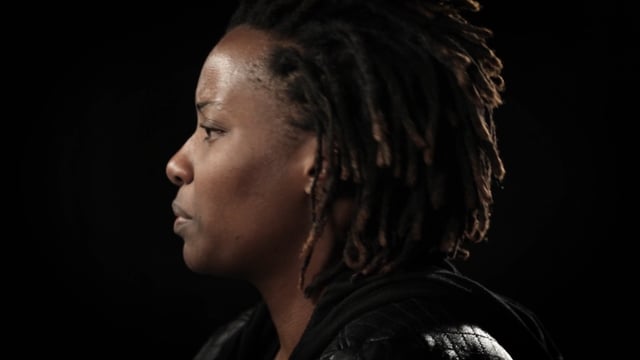Right now, it is Uganda against homosexuals and the biggest solidarity we have is from people who respect and support the rights of LGBTI persons all over the world – Clare Byarugaba
By Becca Carballo, Kristina Lazzara, and Dana Potts
Ugandan LGBTI activist Clare Byarugaba didn’t have to come out to her parents. The media did it for her.
In a Ugandan tabloid, The Red Pepper, she was listed as one of the country’s “Prominent Gays.” This was shortly after the Uganda Anti-Homosexuality Act was passed in 2014.
“There was a lot of fear surrounding being an LGBTI activist,” Byarugaba said in a Skype interview with Marquette students last week. Fears of being harassed, assaulted and, in some cases, murdered are on her mind as she continues her work as a prominent LGBTI activist in Uganda, she said.
Byarugaba will visit MU this week as part of the Marquette Democracy Project, which is bringing prominent activists from around the world to interact with MU students and the greater community. She will present a public lecture, Dare to Resist, on Tuesday, March 28, at 4 p.m.
Despite the dangers LGBTI activists face, Byarugaba said she refuses to be silent.
Growing up in Kabale in southwestern Uganda, she said remembers a time when there was no name for homosexuality. It came to the forefront of Ugandans’ minds when Scott Lively, a Massachusetts evangelical preacher, visited Ugandan religious leaders and politicians, and brought it to their attention.
He helped draft the Anti-Homosexuality Act, which became law in 2014. It banned homosexuality and sentenced any person found guilty of it to a life sentence.
Byarugaba was an intern in parliament when the bill was first discussed. She said she was mortified to find out a parliament member from her district helped draft the bill.
“It was very personal for me that my member of parliament – who should respect my rights, as his constituent – was authoring that bill,” Byarugaba said. Six months after it was passed, the high courts deemed it unconstitutional.
Despite the law’s repeal, Byarugaba said she still has a tense relationship with her own family, who not all accept her sexuality. Since her public outing by the tabloid, she’s been estranged from most of her relatives, she said.
Not having a family unit to fall back on has been one of the biggest struggles for her, Byarugaba said. As an advocate, she expects violence and insults from the public, but to have the hatred to come from her own family is even more difficult to deal with, she said.
Byarugaba is now employed at Chapter Four Uganda as the head coordinator of the Equality and Non-Discrimination Program. Chapter Four Uganda is an independent non-profit, non-partisan organization dedicated to the protection of civil liberties and promotion of human rights for all in Uganda.
One of her current projects in that role is to start a Ugandan chapter of a support group for LGBTI people called PFLAG (Parents, Families and Friends of Lesbians and Gays).
“I don’t have the best relationship with my family so I want something like PFLAG to really bring some kind of reconciliation between LGBT individuals and their parents,” she said.

